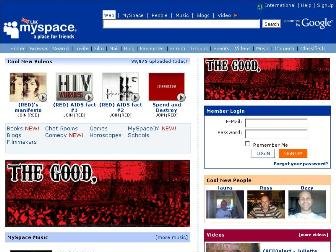MySpace worries child welfare organisation
CEOP publishes key recommendations from recent forums

The growing phenomenon of social networking websites such as MySpace , Bebo , and Lunarstorm has spearked wide-spread public concern for child welfare, a new report by the Child Exploitation and Online Protection Centre ( CEOP ) states.
As the number of young people forming relationships online using such sites increases, CEOP has noticed a spike in public concern for the safety of children and teenagers using them.
Earlier this year Ofcom estimated that some 70 per cent of young people aged between 16 and 24 are using social networking websites to make friends, share information and have fun.
A recent article in The Independent newspaper has further suggested that 6 in 10 of those aged between 13 and 17 years have personal profiles on social networking websites.
To combat the concern about these sites, CEOP recently held a series of seminars attended by parents, teachers, police officers, social workers, industry representatives and other key stakeholders.
Young people
Young people between 10 and 16 were also among the 300 attendees. They shared their experiences of these websites with the rest of the forum, identifying any issues or concerns they had regarding personal security online.
The outcomes can be read in the report, ' Understanding Online Social Network Services and Risks to Youth '.
Get daily insight, inspiration and deals in your inbox
Sign up for breaking news, reviews, opinion, top tech deals, and more.
Key findings include:
- Young people reported that the websites are good for meeting new people, and encouraging self expression. They described the sites as user-friendly, entertaining and economical (services that primarily attract children and young people are free).
- Children and teenagers are often unsure about the security of information they post. They can feel pressurised into uploading information by other users; they sometimes feel exposed to unwanted contact (e.g. from advertisers and unfamiliar users); and find it difficult to establish trusting relationships online.
- Adult focus groups said that they are largely unaware of the services social networking websites offer children and young people. This includes the extent of their use, and the risk of harm they may pose to this category.
- Adults also found the websites beneficial in encouraging self expression among young people. Although they are concerned about how much personal information may be posted when interacting in this environment.
CEOP will continue to work alongside the Home Office , law enforcement agencies, child protection organisations, and the industry to implement recommendations shaped by these findings. It looks to: "maximise, wherever possible, child protection opportunities within the social networking arena".
In particular, CEOP said it would use findings from the seminars to contribute to the work of the Home Secretary's ' Task Force for Child Protection on the Internet '. The Task Force is looking to produce guidelines for social network providers in the near future.
"We are witnessing growing concerns - primarily from teachers and head teachers - about social networking sites," said Alex Nagle, head of harm reduction for CEOP, and leader for the organisation's research into social networking.
"We have also seen instances where access to such websites has been banned by a number of schools within the UK. One of the main fears behind these decisions is the way the sites can be used by sexual predators to gain access to children."
CEOP said it wanted to ensure that children and young people played a key role in the findings, and advised how to make the websites safer by design.
"After all, young people don't want to be the focus of deviant behaviour online. What they are telling us is that they want the freedom to explore these services without the fear of sexual predators. Therefore, banning these services is not the answer," Nagle added.
Margaret Brennan, head of research for the CEOP Centre and author of the report said: "Young people are very much aware of the risks their peers face online and this is something we're keen to build on. We need to explore ways of fostering a sense of 'online social responsibility' among these young users.
"We hope that the risks and recommendations contained in this report will enhance a child protection focus in the future development of good practice for social networking services," Brennan said.
CEOP works in both on- and offline environments, and is affiliated to the Serious Organised Crime Agency ( SOCA ).
Tech.co.uk was the former name of TechRadar.com. Its staff were at the forefront of the digital publishing revolution, and spearheaded the move to bring consumer technology journalism to its natural home – online. Many of the current TechRadar staff started life a Tech.co.uk staff writer, covering everything from the emerging smartphone market to the evolving market of personal computers. Think of it as the building blocks of the TechRadar you love today.